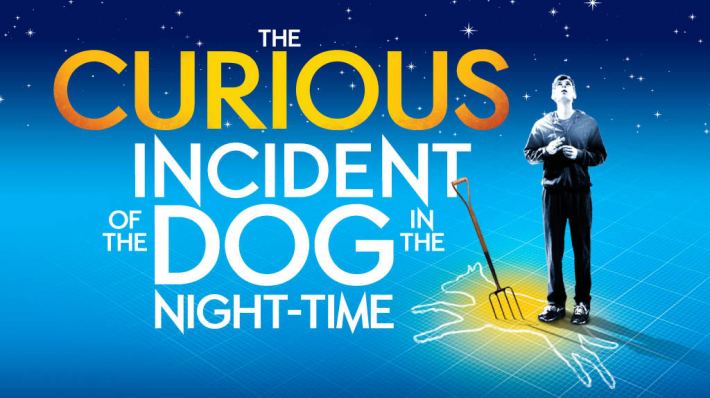Entertainment
How ‘The Curious Incident of the Dog in the Night Time’ became a stage hit
NEW YORK—In a rehearsal room near Times Square, Alex Sharp is about to jump.
The brand-new Juilliard School graduate with a starring role in Broadway’s “The Curious Incident of the Dog in the Night-Time” is practicing a scene in which he must leap into the arms of four actors as part of a dream sequence.
Arms out like Superman, Sharp jumps. His cast mates catch him and lift him over their heads, but it’s all a little awkward.
“Stop!” yells co-movement director Scott Graham as the music cuts off. “That wasn’t quite it. Alex, you hesitated, and there wasn’t quite enough space to jump, yeah?”
There are still many days to go for Sharp to perfect the sequence before opening night next month, but he’s not alone in the challenge: He and the cast and crew are all making a huge leap of faith.
Turning Mark Haddon’s bestselling novel of the same name into a play has been one of the more audacious acts in the theatre, a transformation that not even the author thought possible.
After all, the hero is a 15-year-old boy with Asperger’s syndrome whose range of emotional responses is limited. The teen, Christopher, doesn’t understand metaphors or jokes, abhors physical contact and has a carload of quirks. “I was convinced for a long while that the book was unstageable,” Haddon writes via email.
The man who defied that thinking is playwright Simon Stephens, a friend of Haddon but something of an unlikely adapter. “My imaginary world tends to be a dark old place populated by psychopaths and killers,” Stephens says.
Haddon had been asked many times to try to adapt his own work but had demurred. “I’m not sure I could perform the necessary surgery on my own offspring,” he explains.
So he turned to his friend, Stephens, whose gritty dramas include “Punk Rock,” “Port” and “Wastwater.” The two were of similar age, both were fathers and liked the same kind of music. “It was the friendship and the sense that my stuff wasn’t sentimental that led him to approach me to think about adapting it,” Stephens says.
Stephens agreed to try but only if he could keep the commission quiet and approach it like an experiment, reserving the right to fail. He went about the work methodically.
First, he put all the book’s events in chronological order, then transcribed all the direct speech. A skeletal script emerged and Stephens then reframed the play to be read aloud by Christopher’s teacher and retained its unreliable, off-kilter vibe.
“When you read the book, he captures the kind of magic you get when you watch great dance,” he says. “And although he’s just talking about quadratic equations or about mathematical solutions, there’s something of the dance about Christopher’s brain.”
The play was still sort of rough by the time Marianne Elliott jumped aboard as director. It had no real scenes yet and it asked the actors to sometimes lie down and pretend to be train tracks.
Elliott, an associate director of the Royal National Theatre who co-directed “War Horse,” wanted to echo the fluidity in the script onstage. So the stage was divided into simple geometric squares—reflecting Christopher’s fascination with order—and scenes dissolve seamlessly, aided by clever lighting and projections.
“I thought it was quite a poetic piece so I felt like we had to produce it in a poetic way without worrying about realism or naturalism,” Elliott says. “I wanted a sense of disorientation as well as a sense of the audience being inside what was going on in his head.”
She says she and the creative team were working outside their comfort zones. “We had absolutely no idea how it was going to go.” One of the actors even confessed he thought the concept wouldn’t work. “He came ‘round,” she says, laughing.
The National Theatre put it in its smallest theatre and gave it a 40-performance run. But great reviews soon helped it jump to the West End’s Apollo Theatre, where it won seven Olivier Awards. Then the roof of the theatre collapsed during a December performance, injuring almost 80.
None of the cast and crew wanted Christopher’s story to end that way, so they put on a series of benefit performances, found a new home in London and jumped again to Broadway, hoping Americans also would appreciate the daring playfulness of the adaptation.
Haddon, who, after seeing an early preview, told Stephens that it had helped him fall back in love with his book, now has two productions of a novel he once thought could never make the stage.
“I feel proud, befuddled, amazed, tangentially connected,” he writes. “I’m the grandparent. Without me it couldn’t have happened. But I changed none of the diapers and it now has a life wholly independent of me.”






















